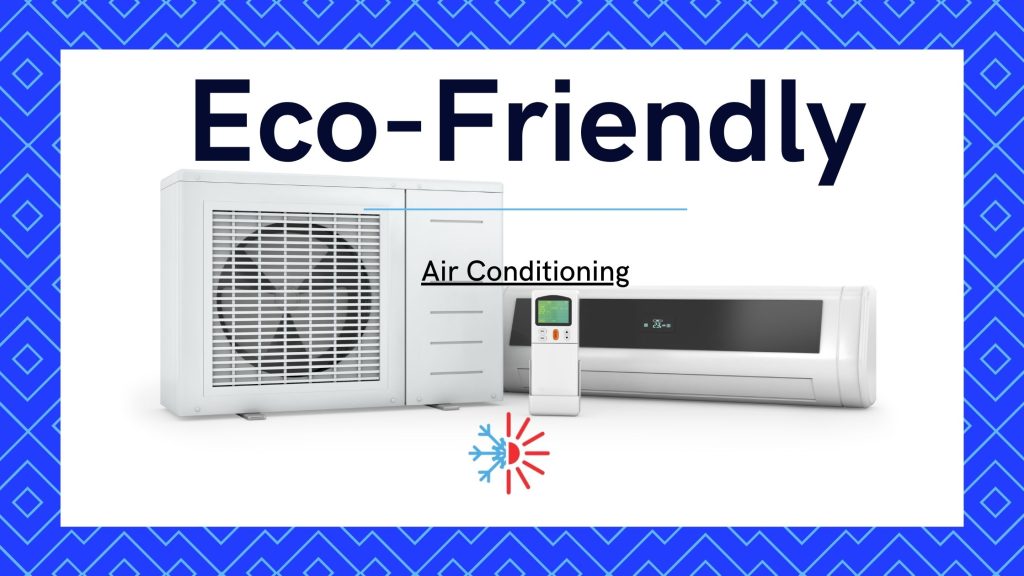Are there eco-friendly and sustainable air conditioning options? This is a question that has gained significant traction in recent years as the world faces the challenges of climate change and the need to reduce greenhouse gas emissions. With the increasing demand for cooling systems, it is essential to explore alternative options that are not only efficient but also environmentally friendly.
Traditional Air Conditioning Systems
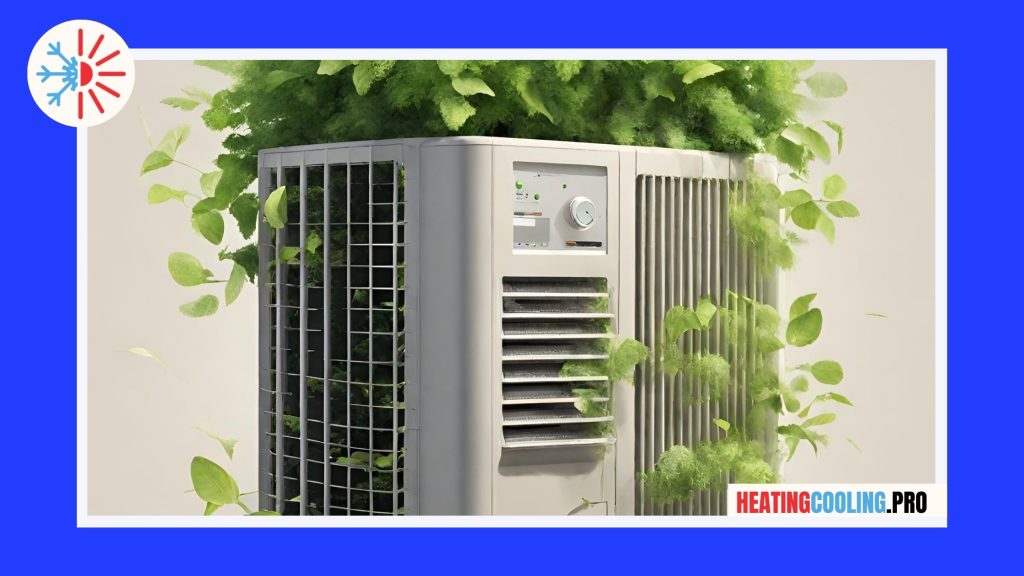
Traditional air conditioning systems have long been known for their negative impact on the environment. They rely heavily on refrigerants that contribute to ozone depletion and global warming. Additionally, these systems consume a significant amount of energy, putting a strain on the power grid and contributing to carbon emissions. As a result, there has been a growing interest in developing sustainable and eco-friendly alternatives.
One of the most promising options is the use of geothermal cooling systems. Geothermal energy harnesses the natural heat stored within the Earth to provide cooling. This method involves running pipes underground to extract heat, which is then transferred to the building for cooling. Geothermal cooling systems have several advantages, including their high efficiency, as they use the stable temperature of the Earth to cool the air without the need for traditional refrigerants. They also have a lower carbon footprint, as they do not rely on fossil fuels for operation. However, the installation costs of geothermal systems can be high, making them less accessible for some homeowners or businesses.
Sustainable Air Conditioning Systems Options
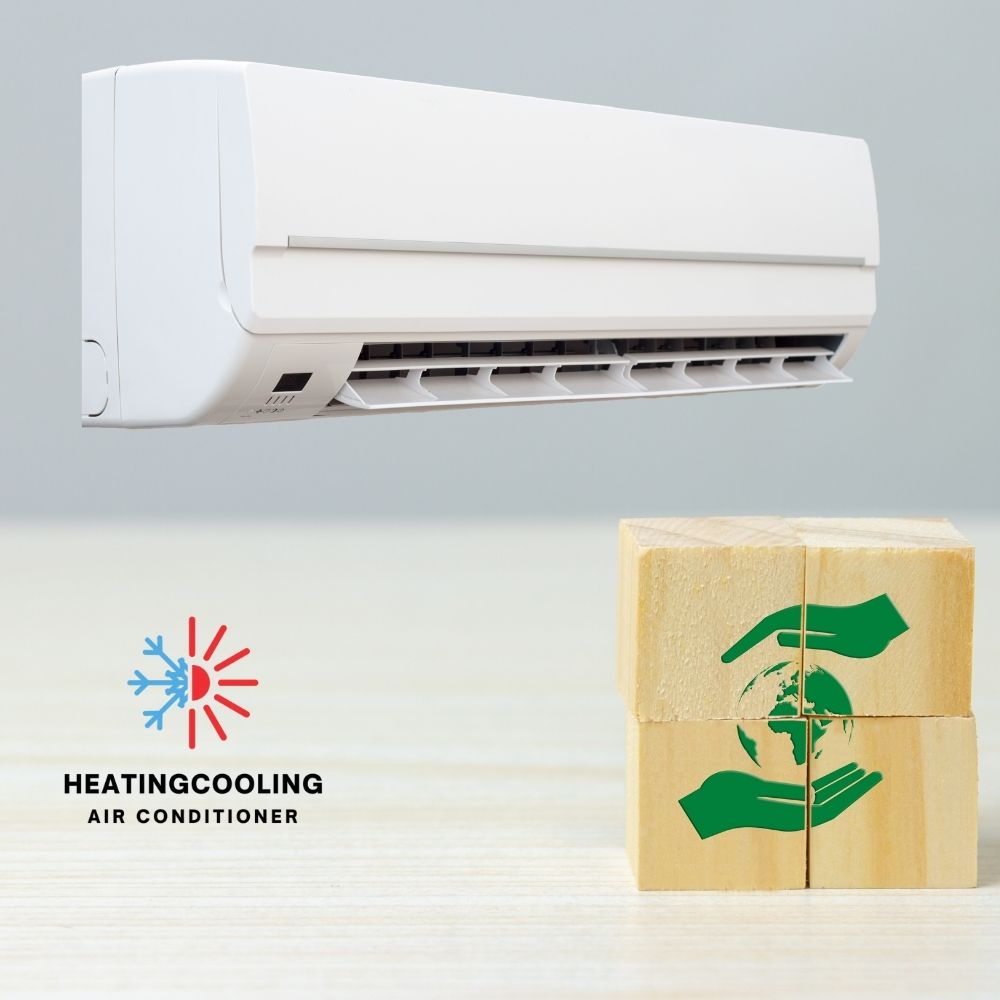
Another sustainable option is the use of evaporative cooling systems, also known as swamp coolers. These systems work by evaporating water to cool the air, making them highly energy-efficient. Evaporative cooling has been used for centuries in arid regions, and it is now gaining popularity in more humid areas as well. Unlike traditional air conditioners, evaporative coolers do not use refrigerants, making them a greener choice. However, they may not be suitable for all climates, as they work best in dry and hot conditions.
Is There Any Eco-Friendly Air Conditioner?
The average American home uses about 11,000 kilowatt-hours of electricity a year, most of which goes to powering appliances and devices. In the summer, air conditioners can account for up to 60% of a home’s electric bill. So, it’s no surprise that people are looking for ways to reduce their reliance on air conditioning and save money on their electric bills.
One way to reduce air conditioning costs is to use an eco-friendly air conditioner. Eco-friendly air conditioners use less energy than traditional air conditioners, which can save you money on your electric bill. They also emit fewer greenhouse gases, which can help reduce your carbon footprint.
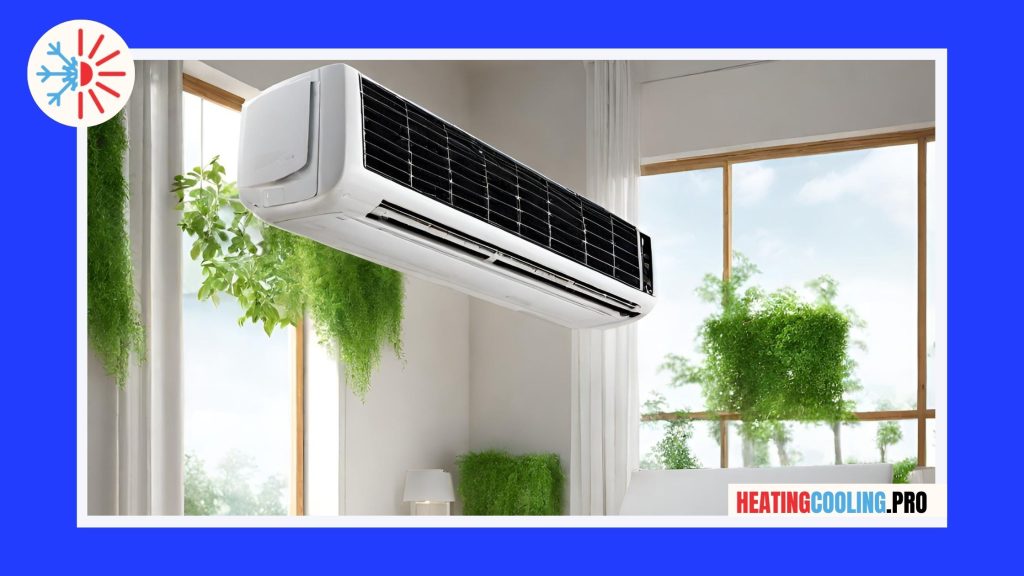
There are a number of eco-friendly air conditioners on the market, including window air conditioners, portable air conditioners, and mini-split air conditioners. Many of these air conditioners are Energy Star certified, which means they meet energy efficiency standards set by the government. Window air conditioners are the most popular type of eco-friendly air conditioners. They are typically less expensive than portable air conditioners, and they don’t require any installation. Some window air conditioners are designed to be more energy efficient than others. You can find window air conditioners that have an Energy Star rating, which means they meet energy efficiency standards set by the government.
Portable air conditioners are another option for eco-friendly air conditioning. They are typically more expensive than window air conditioners, but they can be moved from room to room. Some portable air conditioners are designed to be more energy efficient than others. You can find portable air conditioners that have an Energy Star rating, which means they meet energy efficiency standards set by the government. Mini-split air conditioners are another option for eco-friendly air conditioning. They are more expensive than window air conditioners and portable air conditioners, but they can be more efficient because they use less energy. Mini-split air conditioners are also better for homes with more than one room, because each room can have its own air conditioner.
What Is The Most Eco-Friendly Air Conditioner?
The most eco-friendly air conditioner is the one that best meets your cooling needs while using the least amount of energy. When shopping for an air conditioner, consider the energy Star rating, the size of the unit, and the features that are important to you.
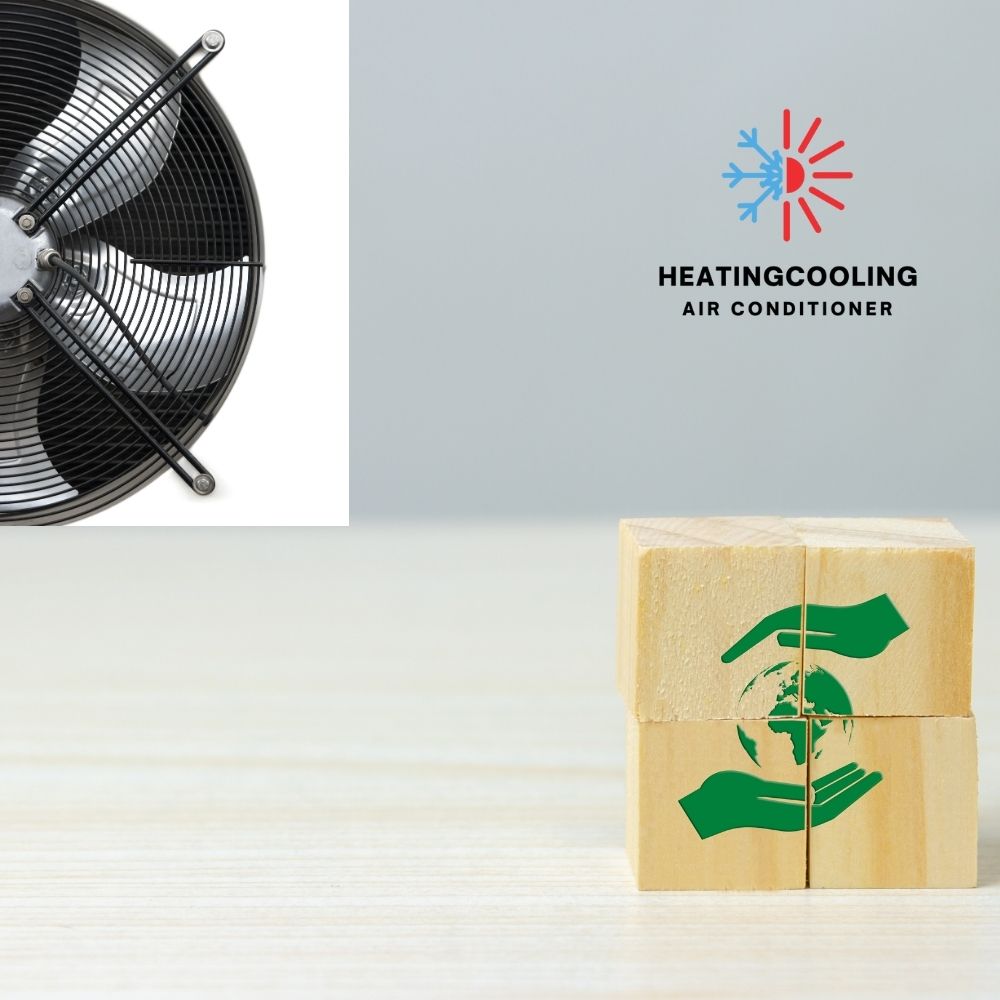
The energy Star rating is a measure of how energy efficient an air conditioner is. The higher the energy Star rating, the less energy the air conditioner will use. The size of the unit is important because an air conditioner that is too small will not be able to cool your home sufficiently, and an air conditioner that is too large will use more energy than necessary.
The features that are important to you will vary depending on your needs. Some people may value energy efficiency more than other features, while others may value features such as a remote control or a programmable thermostat more than energy efficiency. When shopping for an air conditioner, consider all of these factors to find the one that is best for you.
- BTU: The first factor to consider is the BTU, or British thermal unit. This is a measure of the amount of heat that the air conditioner can remove from a room in an hour. You will need to find an air conditioner with a BTU that is appropriate for the size of your room. If you have a large room, you will need an air conditioner with a higher BTU rating.
- Energy Efficiency: Another important factor to consider is energy efficiency. Air conditioners that are more energy efficient will use less energy to cool your room, which will save you money on your energy bills. Look for an air conditioner with an Energy Star rating to ensure that you are getting a model that is energy efficient.
- Cooling Capacity: The cooling capacity of an air conditioner is another important consideration. This is the amount of heat that the air conditioner can remove from your room in an hour. The cooling capacity is measured in British Thermal Units (BTUs).
You will want to choose an air conditioner with a cooling capacity that is large enough to cool your room. But, you don’t want to choose an air conditioner with a cooling capacity that is too large, because it will be more expensive to operate and may not fit in your room.
What Is A Sustainable Alternative To Ac?
A sustainable alternative to air conditioning (AC) is a cooling system that does not use ozone-depleting refrigerants or contribute to global warming. Some sustainable cooling systems use waste heat from industrial processes or the burning of biomass fuels to generate the necessary cooling power. Others use water evaporation or fans to create a breeze.
One such sustainable cooling system is the evaporative cooler. Evaporative coolers use a fan to blow air through a wet pad. The water in the pad evaporates, absorbing heat from the air. The cooled air is then blown into the building. Evaporative coolers are simple, effective and inexpensive to operate. They can be used in both hot and dry climates.
Another sustainable cooling system is the wind tower. A wind tower uses a fan to blow air into a tall, cylindrical tower. The air rises, pulling cooler air from the ground up into the building. Wind towers are most effective in hot, dry climates. A third type of sustainable cooling system is the water evaporation cooler. Water evaporation coolers use water to absorb heat from the air. The cooled air is then blown into the building. Water evaporation coolers are most effective in hot, humid climates.
How Can We Make Air Conditioning Be Sustainable?
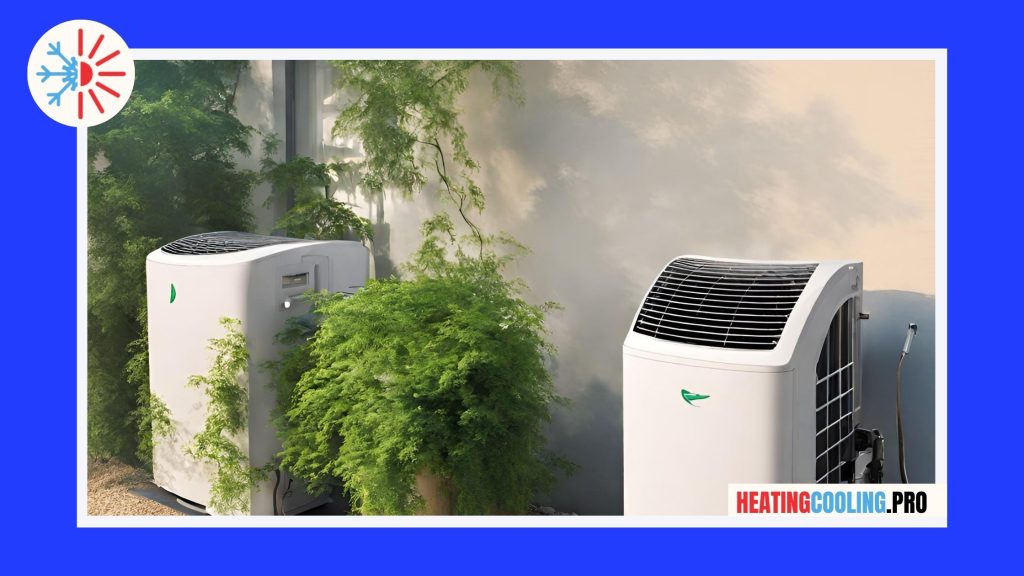
Air conditioning is a basic necessity in the summer, but it can also be one of the biggest sources of energy consumption in a home. So how can we make air conditioning be sustainable? There are a few things we can do to make air conditioning more environmentally friendly. We can start by making sure our air conditioning units are properly sized for our homes. A unit that is too big will cycle on and off frequently, which can lead to energy waste. We can also make sure our units are properly maintained and cleaned regularly, as dirty units can be less efficient.
We can also improve our home’s insulation and cooling efficiency. Adding insulation to our attic and walls can help keep the heat out in the summer, and installing window treatments that block the sun can help keep the home cooler. We can also use fans to help circulate the air in the home, which can help reduce the need for air conditioning.
Solar-Powered Air Conditioning
Solar-powered air conditioning is another eco-friendly option that has gained attention in recent years. This technology utilizes solar energy to power the air conditioning system, reducing reliance on the grid and fossil fuels. Solar air conditioners can either use photovoltaic panels to directly convert sunlight into electricity or use solar thermal technology to generate cooling through the absorption or desiccant cooling cycles. While solar air conditioners have a higher upfront cost, they can provide long-term savings on energy bills and reduce carbon emissions.
In recent years, there have also been advancements in refrigerant technology. Traditional air conditioning systems often use hydrofluorocarbons (HFCs) as refrigerants, which have a high global warming potential. However, new refrigerants, such as hydrofluoroolefins (HFOs), have been developed as more environmentally friendly alternatives. These new refrigerants have a lower global warming potential and do not deplete the ozone layer. Additionally, some companies are exploring natural refrigerants, such as carbon dioxide (CO2), as a sustainable option.
Type Eco-Friendly And Sustainable Air Conditioning
It is important to note that eco-friendly and sustainable air conditioning options are not limited to the type of system used but also include factors such as energy efficiency and proper maintenance. Energy-efficient air conditioners, regardless of the technology used, can significantly reduce energy consumption and greenhouse gas emissions. Regular maintenance, such as cleaning filters and ensuring proper insulation, can also improve the efficiency of the system.
Conclusion
There are indeed eco-friendly and sustainable air conditioning options available. Geothermal cooling systems, evaporative coolers, solar-powered air conditioners, and advancements in refrigerant technology all provide viable alternatives to traditional air conditioning systems. However, it is crucial to consider factors such as climate suitability, upfront costs, and ongoing maintenance when choosing the most suitable option. By making conscious decisions and adopting sustainable practices, we can reduce our environmental impact while still enjoying the comforts of a cool and comfortable indoor environment.
